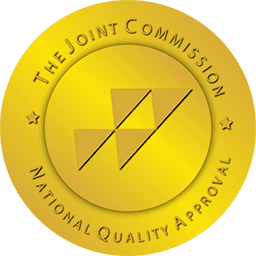- Home
- Treatment
Treatment Designed for You.
Get in touch with Absolute Awakenings today and begin your journey to long-term healing & recovery. - What We Treat
An Experience in Healing
Get in touch with Absolute Awakenings today and begin your journey to long-term healing & recovery. - About
The Rehab You've Been Looking For
Get in touch with Absolute Awakenings today and begin your journey to long-term healing & recovery. - Tour
- Resources
Don't Wait Another Day.
Get in touch with Absolute Awakenings today and begin your journey to long-term healing & recovery. - Admissions
The Rehab You've Been Looking For
Get in touch with Absolute Awakenings today and begin your journey to long-term healing & recovery. - Contact
(866) 627-0196
3000 NJ-10, Morris Plains, NJ 07950
admissions@absoluteawakenings.com
Schedule a Tour Now
Get in touch with Absolute Awakenings today and begin your journey to long-term healing & recovery.
Begin Your Journey Now
Begin Your Journey Now
- Home
- Treatment
Treatment Designed for You.
Get in touch with Absolute Awakenings today and begin your journey to long-term healing & recovery. - What We Treat
An Experience in Healing
Get in touch with Absolute Awakenings today and begin your journey to long-term healing & recovery. - About
The Rehab You've Been Looking For
Get in touch with Absolute Awakenings today and begin your journey to long-term healing & recovery. - Tour
- Resources
Don't Wait Another Day.
Get in touch with Absolute Awakenings today and begin your journey to long-term healing & recovery. - Admissions
The Rehab You've Been Looking For
Get in touch with Absolute Awakenings today and begin your journey to long-term healing & recovery. - Contact
(866) 627-0196
3000 NJ-10, Morris Plains, NJ 07950
admissions@absoluteawakenings.com
Schedule a Tour Now
Get in touch with Absolute Awakenings today and begin your journey to long-term healing & recovery.
Adderall® Rehab Center in New Jersey
Adderall® Addiction: Signs, Symptoms & Causes
- Written By: Amanda Stevens, B.S.
- Reviewed By: Dr. Po-Chang Hsu, M.D., M.S.
- Updated:
- Published:
- Reading Time: 9 minutes
If you or a loved one is abusing Adderall®, let our Adderall® addiction treatment center in NJ help.
Adderall® Addiction & Recovery in NJ
Find Your Focus
Table of Contents
Adderall® has long been known as one of the most effective medications for treating attention deficit hyperactivity disorder (ADHD). It can help a person become more focused and aware, but the downside is that it has a high risk of dependence and addiction. These risks are especially prevalent if the medication is misused.
Key Points
- Adderall®, a commonly prescribed medication for attention deficit hyperactivity disorder (ADHD), carries the risk of addiction when misused or taken without medical supervision
- Recognizing the signs of Adderall® addiction is vital for early intervention and effective treatment.
- Recovery from Adderall® addiction is a journey that requires ongoing support and commitment.
Addictions We Treat at AATC
What We Treat
understanding Adderall®
What is Adderall®s?
Adderall®’s primary purpose is to treat ADHD. It is occasionally prescribed to treat narcolepsy. It is made from amphetamine salts, which make it a powerful stimulant. There are two main amphetamine salts in this medication that occur in equal amounts: racemic amphetamine and dextroamphetamine. They work by improving the functionality of neurotransmitters in the brain, specifically dopamine and norepinephrine.
It is ideal for controlling behavioral problems and an inability to focus or stay still. It is a Schedule II substance, which means it has a significant potential for abuse. Street names for Adderall® include Addy, pep pills, speed, and thundersticks. In recent decades, the abuse of prescription stimulants, including Adderall®, increased by as much as 67%.[1]
Adderall® addiction is always a risk whenever someone takes this medication. Knowing all the facts about Adderall® is important before you get anywhere near it.
Adderall® Addiction Signs, Effects, Risks & Statistics
When stimulants are misused, they induce an intense feeling of euphoria that often leads to increasing frequency and greater doses, sparking the cycle of addiction. As a Schedule II controlled substance, stimulants are deemed highly addictive.
Adderall® addiction and abuse can be determined based on the following signs and symptoms:
- Cravings for Adderall®
- Withdrawal symptoms when you’re not taking Adderall®
- Increased anxiety
- Finding multiple doctors who will prescribe you more of the substance
Other signs of Adderall® addiction include a runny nose, excess sweating, nausea, and the inability to stay still. Some people addicted to Adderall may steal from their relatives to get more Adderall® or get money to buy amphetamine salts off the street.
It is common for many people to take Adderall® as prescribed before drifting into the realm of dependence and addiction without even realizing it. You might start taking Adderall® to help with your ADHD, but before you know it, you might have a hard time functioning without this medication.
Those who misuse Adderall® are more likely to become addicted than those who take it as prescribed. Still, addiction is always possible, and it is especially likely among those who already have substance use disorders.
The effects of Adderall® abuse are often obvious and take the form of excess excitability. You may be unusually talkative and nervous, your thoughts may race quickly from one to the next, and you may experience a sense of grandiosity.
Some may also experience nausea, vomiting, and twitchiness or ticks.
Without professional Adderall® addiction treatment, it can be very difficult to stop such an addiction on your own. The long-term use of Adderall® can cause a lot of damage to your brain and body. Some of the more common symptoms include insomnia, weight loss, agitation, increased anxiety, and panic attacks.
It is also possible for some to experience toxic psychosis. This is when the high levels of Adderall® in a person’s body cause hallucinations, delusions, and paranoia. It may be impossible for this person to communicate normally with others, and they may become violent or panicked.
6.6% of people in the United States use stimulants, and around 2.1% of that group misuse the substance.[3] Many people misuse Adderall® because they want to feel more alert. Others may want to use it for recreational uses.
In those cases, some get Adderall® from their friends or family members rather than getting their own prescriptions. Some may also try buying Adderall® or other forms of amphetamine salts illegally off the street.
understanding what Adderall® addiction looks like
How Do People Abuse Adderall® ?Can You Overdose on Adderall®?
Adderall® most commonly comes in little blue pills or tablets that must be swallowed whole. In some cases, it is necessary to take two to three pills throughout the day. This will give the pills plenty of time to slowly dissolve in your stomach and be released into your body.
Many people who become addicted to Adderall® misuse it by snorting the powder from the crushed pills or injecting it. Some may also try heating the crushed pills and inhaling the vapor.
This releases the entire dose of the pill at once and causes euphoria. This feeling is highly addictive and often compels Adderall® users to continue taking the substance incorrectly. This mode of administration is also very dangerous and can lead to an overdose.
Regular Adderall® releases immediately into the system after taking the pills. The pill dosages range from 5 to 30 mg. Due to how these pills stimulate dopamine and norepinephrine (which is a fight-or-flight hormone), Adderall® can cause a variety of very intense side effects.
Some people experience changes in their emotions, and they may often feel angry, paranoid, or anxious.[2] Weight loss is a common issue due to Adderall®’s ability to suppress one’s appetite. In more severe cases, this drug may cause high blood pressure, strokes, headaches, abdominal pain, and depression.
Many of the side effects of this drug are the same as those of traditional Adderall®. People may also experience abdominal pain, dry mouth, nervousness, and trouble sleeping.
Mixing Adderall® with Other Drugs
You should not take Adderall® with Xanax, as this may result in seizures. You should also avoid mixing it with alcohol. This is because, while taking Adderall®, it is easier to develop alcohol poisoning without realizing it until it’s too late.
Can You Overdose on Adderall®?
It is possible to overdose on Adderall®. Medical attention, Adderall® recovery, and addiction treatment may be required to resolve the dependence and address misuse.
Because Adderall® is a stimulant, this kind of overdose looks different compared to an overdose of sedatives or hypnotics. Having too much Adderall® in your system will make you feel breathless and panicked. Your heart rate will skyrocket, along with your blood pressure and breathing rate.
Those who have overdosed on Adderall® are confused and hyperactive. More severe symptoms may include hallucinations, fever, chills, aggressiveness, and convulsions. There is also the risk of rhabdomyolysis, which is the breakdown of muscle tissue.
It is important to call for medical assistance once you find someone who has overdosed on Adderall®. If they are conscious, try to keep them calm. If they are unresponsive, stay with them and make sure they keep breathing until medical services arrive.
We Accept With Most Major Insurance
If you or a loved one is ready to get help but finances are holding you back, give us a call. We can work with your health insurance provider.














Stories of Hope & Healing
Hear from Our Alumni
A jewel among many local drug and alcohol rehab treatment centers in Denville, New Jersey, the care and treatment options you’ll receive at Absolute Awakenings is second to none. From not knowing if you’ll ever feel in control again to being confident in the path you’re on, we are invested in YOU every step of the way.
Begin Your Journey to Long-Term Healing
Make the Call. Change Your Life.
Yes, You Can Get Your Life Back...
With our trained and compassionate professionals in your corner, freedom can be yours. All it takes is you choose yourself. Choosing a better tomorrow.
how to find the best Adderall® rehab in NJ
Getting Treatment for Adderall® Addiction in New Jersey
Adderall® treatment programs range from detox and residential treatment to outpatient and aftercare, based on individual needs. Most people require treatment for several weeks or months before they are independent enough to continue on their own.
Various therapeutic methods play a major role in treatment.
The detox process occurs over several weeks before beginning longer-term treatment. Effective detox strategies are paired with intensive therapy that will outlast the detox program. The cost of the treatment will vary depending on the program. In many cases, health insurance will cover all or some of your treatment programs.
Modafinil® is a common medication used to reduce the severity of Adderall® withdrawal symptoms. Some benzodiazepines may be used for this purpose as well, but each patient’s treatment plan will be customized to their needs.
ADHD is the most common co-occurring disorder for this medication since most people seek out Adderall® as a form of treatment due to this disorder. Those with narcolepsy often take Adderall® as well.
It’s also common for people who use Adderall® to develop anxiety, or their anxiety may become worse. Some may develop psychosis or have panic attacks. In any case, dual diagnosis treatment, which addresses both substance use disorder and mental health disorders holistically, is the best treatment option.
Answers to Common Questions About Adderall®
Adderall® Addiction FAQs
If you do not have ADHD or narcolepsy, you should not take Adderall®. You should also not take it if you have a substance use disorder.
Adderall® is obtained through a doctor’s prescription. However, some people may get the substance illegally off the streets.
Withdrawal symptoms are severe and often include nausea, vomiting, abdominal cramps, sweating, fever, chills, delusions, and body pain.
don't let Adderall® addiction control your life
Find the Best Adderall® Addiction at Treatment in New Jersey at AATC
Regain Yourself & Take Control of Your Future
The journey towards recovery from Adderall® addiction can feel challenging, both physically and emotionally. Adderall Addiction Treatment in New Jersey At Absolute Awakenings Treatment Center in NJ, we understand the complexities of addiction and the courage it takes to seek help. That’s why our compassionate team of experts, armed with the latest advances in technology and holistic approaches, create a warm and welcoming environment where individuals feel validated, supported, and empowered.
Our high-energy experts strive to provide compassionate and expert care, setting us apart from other treatment centers. At Absolute Awakenings Treatment Center, we combine a human-centered approach with leading-edge advancements in technology to optimize the recovery process and promote lasting well-being.
If you or a loved one is struggling with Adderall® addiction, remember that hope and healing are possible. At Absolute Awakenings Treatment Center in NJ, the journey towards recovery starts with a single step. Contact us today to explore our holistic approaches, innovative therapies, and supportive environment. Together, let’s embark on a journey towards wellness, peace, and the promise of a brighter future.
Your journey towards healing starts here. Let us walk this path together with empathy, understanding, and a shared commitment to your recovery.
- Weyandt, L. L., Oster, D. R., Marraccini, M. E., Gudmundsdottir, B. G., Munro, B. A., Rathkey, E. S., & McCallum, A. (2016). Prescription stimulant medication misuse: Where are we and where do we go from here? Experimental and clinical psychopharmacology, 24(5), 400–414. Retrieved from https://www.ncbi.nlm.nih.gov/pmc/articles/PMC5113141/ on May 18, 2023.
- NIDA. 2018, June 6. Prescription Stimulants DrugFacts. Retrieved from https://nida.nih.gov/publications/drugfacts/prescription-stimulants on May 18, 2023.
- American Journal of Psychiatry. (n.d). Prevalence and Correlates of Prescription Stimulant Use, Misuse, Use Disorders, and Motivations for Misuse Among Adults in the United States. Retrieved from https://ajp.psychiatryonline.org/ on May 18, 2023.
© Copyright 2024. All Rights Reserved. AATC.
- Terms & Conditions
- Privacy Policy



